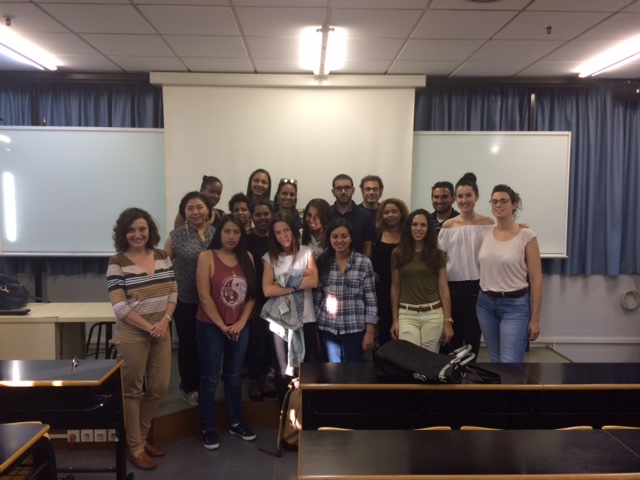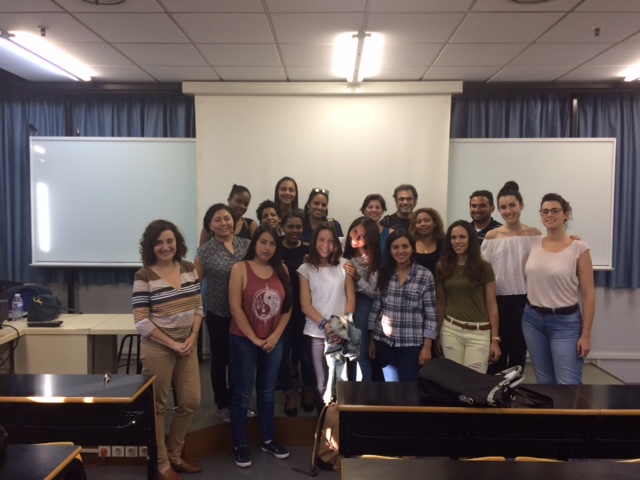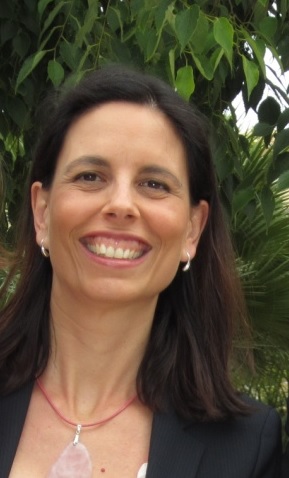-Foto-Valero-en-Vietnam.jpg)
The Director of the Master’s degree in Tropical Parasitic Diseases, Dr María Adela Valero, and her team have published the results of a large study proving for the first time that Fasciola gigantica is more pathogenic than Fasciola hepatica. In addition, biochemical markers useful for its differential clinical diagnosis have been provided.
22 september 2016
Currently an emerging disease in several world regions, human Fasciolosis is caused by two trematodes parasites species: Fasciola hepatica and Fasciola gigantica. In Africa and Asia an increase of human illness caused by Fasciona gigantica has been detected in the last years. This species has always been ignored due to the rareness of human cases caused. For this reason, similarly to some other recent emergencies, as with Zika virus, this parasite had not been thoroughly studied, unlike Fasciola hepatica, which was studied because of its frequency in humans from all continents. This is how the latter had always been erroneously considered more pathogenic than the former.
In view of this situation, the World Health Organisation (WHO) asked to the WHO Collaborating Centre of Valencia to carry out detailed studies to learn about the features of Fasciola gigantica infection, its physiopathological consequences and the development of methods for differential diagnosis in patients. The first results of this study have just appeared in an special in an special issue of the famous scientific Transactions of the Royal Society of Tropical Medicine and Hygiene journal of London. “This long process began in 2007 as a result of a WHO’s expedition to Vietnam in order to check the emergency of this disease across the whole country from Southeast Asia” as Dr Valero said. Clearly proud, Dr Valero adds that “such studies on parasitic diseases are inevitably large, since the trematodes’ biologic cycles take several months and additionally, since we are facing different geographical strains from the same parasite species in different countries that must be identified in advance. We have been working hard for some years and this is to all of us a very rewarding publication”.
“We are all very happy about this achievement, since it has taken a huge and lengthy effort. For years, we have done several expeditions to areas of human endemic in different Asian and African countries. And we have also done a lot of laboratory and testing work in animal model” as Dr Mas-Coma said, the Coordinator of the initiative and Director of the WHO Collaborating Centre of Valencia. “Like in most of relevant studies nowadays, this has been possible thanks to the collaboration of several aspects of the experimental work. For that matter, we have to quote the parasitology laboratory in the University of Santiago de Compostela, the Agricultural Research Centre in A Coruña and the Central Hospital of the Defense Gómez Ulla in Madrid” as Mas-Coma underlined in the end.
This line of research continues in the WHO Collaborating Centre of Valencia and is expected to achieve additional results of interest in the immediate future. Some of the participants in the studies are Master’s degree in Tropical Parasitic Diseases students, who are now either carrying out their Master’s dissertation or already doing their Doctoral studies, those who decide to continue their specialisation in the field of parasitic diseases.
Ante esta situación, la Organización Mundial de la Salud (OMS) encargó al Centro Colaborador de OMS en Valencia la realización de los estudios pertinentes para llegar a conocer las características de la infección por Fasciola gigantica, sus consecuencias fisiopatológicas y el desarrollo de métodos para su diagnóstico diferencial en los pacientes. Los primeros resultados de dicho estudio acaban de ver la luz en una publicación de un número especial de la conocida revista científica inglesa del Transactions of the Royal Society of Tropical Medicine and Hyiene de Londres. "Todo este largo proceso se inicia ya en 2007 a raiz de una expedición de OMS a Vietnam en la que participamos para verificar la realidad de la emergencia de esta enfermedad a lo largo y ancho de todo este país del Sud-Este de Asia", comenta la Dra. Valero. "En las enfermedades parasitarias este tipo de estudios son siempre inevitablemente muy largos, ya que los ciclos biológicos de etos trematodos precisan de muchos meses y además nos enfrentamos a cepas geográficas distintas de una misma especie de parásito en diferentes países que hay que caracterizar con antelación. Llevamos ya años de esfuerzos y el haber conseguido esta publicación representa un gran estímulo para todos", añade la Dra. Valero con evidente satisfacción.
"Estamos todos muy contentos con este logro, por el enorme y larguísmo esfuerzo que ha requerido. Han sido años de expediciones a zonas de endemia humana en diferentes países de Asia y Africa, y de mucho trabajo laboratorial y de experimentación en modelo animal", incide el Dr. Mas-Coma, coordinador de la iniciativa y director del Centro Colaborador de la OMS de Valencia. "Como suele ser en la mayoría de estudios de relevancia en la actualidad, ello ha sido posible por la colaboración con otros centros en distintas facetas del trabajo experimental. En este sentido hay que citar al Laboratorio de Parasitología de la Universidad de Santiago de Compostela, al Centro de Investigaciones Agrarias de A Coruña y al Hospital Central de la Defensa Gómez Ulla de Madrid", resalta Mas-Coma al final.
Esta linea de investigación prosigue en el Centro Colaborador de la OMS de Valencia y se espera la consecución de resultados adicionales de interés en el futuro inmediato. Algunos de los participantes en los estudios son alumnos del Master en Enfermedades Parasitarias Tropicales, bien en la realización de su trabajo de Master, bien ya en Doctorado en aquellos que deciden proseguir su especialización en el campo de las enfermedades parasitarias.











